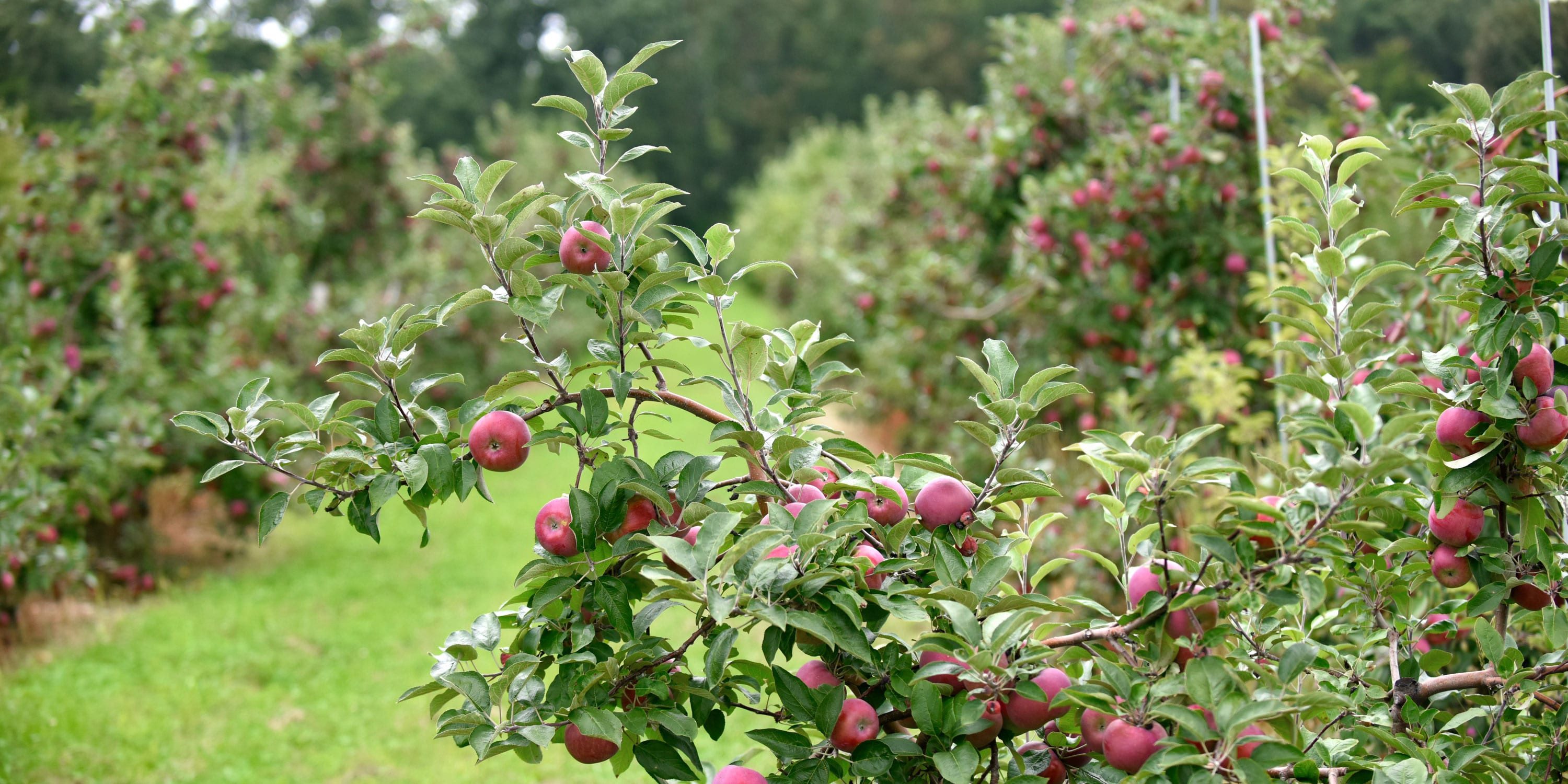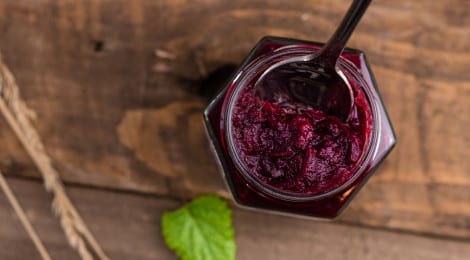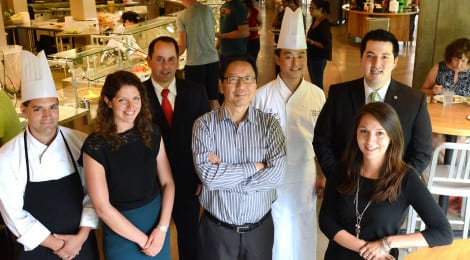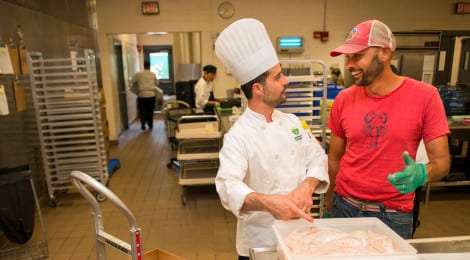
Food Vision Prize Profile
Farming More Land & Extending the Season
New England farmers have a brief window during which to grow and profit from their produce. The season typically falls outside of the traditional academic year. In order to bridge that gap, two things need to happen: More produce needs to be cold-stored or processed and stored without compromising quality, and more infrastructure needs to exist for year-round growing.
Harvard University, Boston College, and Tufts University are joining forces to incentivize farmers to take on new land and new forms of growing and storing for several high-volume crops of interest to the campus partners. The schools will work through their common produce vendor, Costa, and collaborate with the New Entry Sustainable Farming Project to identify current farmers who may already be growing these items and who may also be willing to take on new farmland to grow specifically for these three institutions. This could be done through traditional methods and traditional seasons, or with the use of high tunnels, hoophouses and greenhouses. The three schools are long-time colleagues who have readily shared resources in support of the region’s Food Vision goal.
In short, this partnership seeks to grow the farmers’ annual revenue through new, additional harvest by identifying products that are needed year-round but are not currently available year-round. Ultimately for the region this means more land dedicated to farming and less farmland lost to development. New England farmers will be incentivized to expand acres of farmland in production and campus consumers will be able to enjoy more of the region’s bounty year-round.


